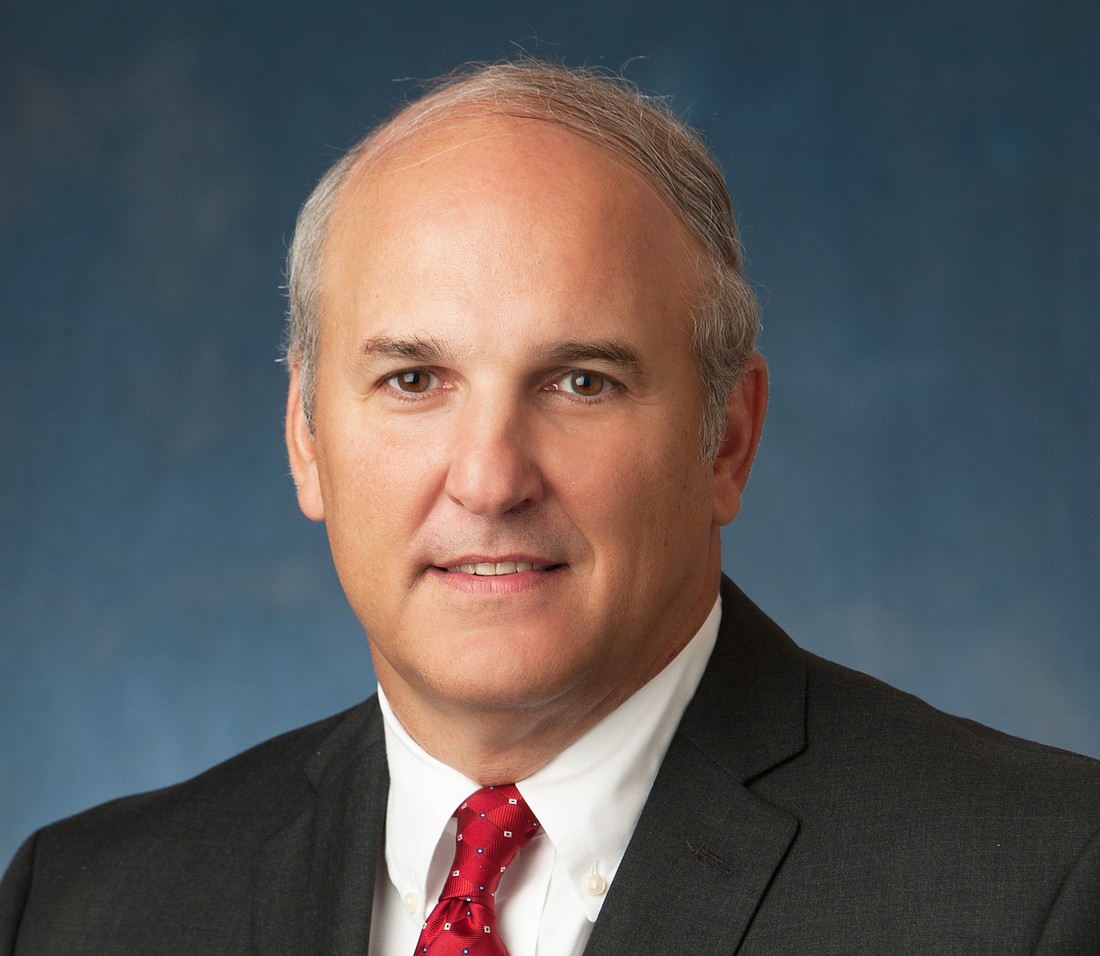
Angel Miele’s daughter has a rare neurological disorder that causes mobility issues. By the age of 5, Miele’s daughter had undergone five surgeries, numerous emergency room visits, doctor appointments and physical therapy.
The disability creates a barrier for Miele to take her growing child, who turns 8 on Sept. 22, to a restaurant, movie or ballgame.
“Unfortunately, our babies don’t stay babies forever. I had no idea changing a diaper would be such a big challenge. We found ourselves changing her on filthy public restroom floors and in the back of our van,” Miele told City Council on July 23.
Miele told District 11 council member Danny Becton about her concerns three years ago.
Ordinance 2019-464, introduced by Becton, was approved as an emergency July 23.
It requires some businesses with a public restroom to install an adult changing table if they are undertaking new construction or existing building renovations of more than 50%.
The legislation creates a local amendment to the Florida Building Code that will require some businesses with public restrooms to install adult changing tables by Jan. 1.
The ordinance addresses calls from parents like Miele who cannot use existing baby changing tables and other restroom facilities to care for their growing child or adult dependent with disabilities.
Becton said July 24 the new building code provision is a public health and safety issue.
“This is about taking care of a group of needs within our community that begins as early as a child at 2 years old, perhaps for the rest of their life,” Becton said. “For the parents that have to deal with special needs kids, they’re having to lay their kids on the floor of bathrooms, in the trunks of the cars, inside their cars.”
Businesses affected by the change include:
• Theaters
• Sports arenas and stadiums
• Convention centers, auditoriums and exhibition halls
• Public libraries
• Passenger terminals
• Amusement parks with permanent locations
Restaurants with seating for at least 50 people, shopping centers larger than 25,000 square feet and retailers with more than 5,000 square feet also fall under the requirement.
However, restaurants that are within 300 feet of another adult changing table are exempt.
According to the ordinance, the code calls for at least one adult changing table in a business’s public men’s, women’s and unisex restrooms. It also calls for signage locating the tables.
The bill was signed by Mayor Lenny Curry. According to Becton, the bill was filed as an emergency so it could be included as a local amendment to the updated Florida Building Code, which is being drafted this month.
The bill mirrors another local building code provision added in May requiring baby-changing tables in public restrooms. That provision was introduced by former council member John Crescimbeni.
Becton said his former colleague’s bill provided a fix that wasn’t obvious when Miele approached him in 2016.
“Certainly, it was something that I wanted to do, but at the time I didn’t have a solution,” Becton said.
For affected businesses, this will be an additional expense to invest in their property.
Lee Kaufman, CEO of the San Francisco-based supplier of accessibility products Max-Ability Inc., said the average cost for a height-adjustable, folding adult changing table is $7,000 to $8,000. The price does not include the cost of installation.
A table’s price point can vary, depending on table features such as electronic lifts and weight capacity.
With the focus primarily on larger businesses and venues, industry leaders in Duval County don’t see the new building code requirement being a burden to business owners or contractors.
“There will be some cost to the building owner for both design and construction. But once the specs are in the plans, it’s construction business as usual,” said Karin Tucker Hoffman, president and CEO of the Associated Builders and Contractors Florida First Coast Chapter.
Kaufman founded Max-Ability in 1993 after a career as a registered nurse. He designed a table specifically for public restrooms and with the durability to withstand vandalism.
He said he’s been working with advocates in Tallahassee to introduce legislation in the Florida Legislature to bring more of the changing tables into public restrooms. He said he didn’t know of any other U.S. city that has added an adult changing table provision into its building code.
U.S. businesses have begun adding adult changing tables to restrooms to address a growing demand from Americans with Disabilities Act accessibility advocates, but the private sector market for adult changing tables has emerged in the past four years, Hoffman said.
The product has been available since the late 1990s, mostly used by public schools and adult day care programs.
“Right now, it’s mostly business owners being proactive and not necessarily trying to meet code,” Kaufman said.
There currently is no U.S.-based manufacturer making the wall-mounted, foldable adult changing tables, according to Kaufman, and Max-Ability sources its stock from Denmark.